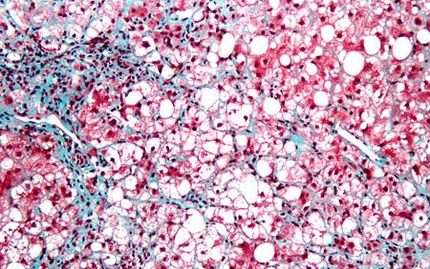Raptor Pharmaceutical Corp. Signs Collaborative Research and Development Agreement With NIDDK on Phase 2b Clinical Trial of RP104 in Non-Alcoholic Steatohepatitis
Raptor Pharmaceutical Corp. announced the signing of a cooperative research and development agreement (CRADA) with the National Institute of Diabetes and Digestive and Kidney Diseases (NIDDK) part of the National Institutes of Health (NIH) to conduct a Phase 2b clinical trial. The clinical trial will evaluate the safety and potential efficacy of RP104, Raptor's proprietary delayed-release tablet formulation of cysteamine bitartrate, as a potential treatment of non-alcoholic steatohepatitis (NASH), an advanced form of non-alcoholic fatty liver disease (NAFLD), in children. The clinical trial is expected to begin in the first calendar quarter of 2012 with NIDDK and Raptor sharing the costs to conduct the clinical trial.
The Cysteamine Bitartrate Delayed-Release for the Treatment of Non-alcoholic Fatty Liver Disease in Children (CyNCh) trial is expected to enroll a total of 160 pediatric participants at ten U.S. centers in the NIDDK-sponsored NASH Clinical Research Network (NASH CRN). Enrolled participants will range in age from 8 to17 years and have biopsy-confirmed moderate to severe NAFLD. The primary objective of this randomized, multicenter, double-blind, placebo-controlled clinical trial is to evaluate whether 52 weeks of treatment with RP104 in children reverses damage caused by NASH as measured by changes in NAFLD Activity Score (NAS), a histological rating scale of disease activity. Secondary endpoints will include blood markers for liver health including alanine transaminase (ALT) and aspartate transaminase (AST), as well as safety and tolerability.
This planned CyNCh trial follows positive results of an open-label Phase 2a clinical trial which was conducted under a collaboration agreement between Raptor and UC San Diego at UC San Diego's General Clinical Research Center. The Phase 2a clinical trial involved children with biopsy-confirmed diagnosis of moderate to severe NAFLD and baseline ALT and AST measurements at least twice that of normal levels. These patients received a prototype formulation of RP104 twice daily for six months, followed by a six-month post-treatment monitoring period. All patients showed marked decline in ALT and AST levels during the treatment period with 7 of 11 patients achieving a greater than 50 percent reduction and 6 of 11 patients with reductions to within normal range. The reductions in ALT and AST were largely sustained during the 6 month post-treatment phase. Other important liver function markers showed positive trends with cytokeratin levels decreasing by an average of 45 percent and adiponectin increasing by 35 percent during the treatment period.
Under its licenses with UC San Diego, Raptor is developing proprietary formulations of delayed-release ("DR") cysteamine bitartrate for a number of therapeutic indications, including RP103 (DR cysteamine bitartrate microbeads in capsules) for the potential treatment of nephropathic cystinosis and Huntington's Disease, and RP104 for NASH. Cysteamine is a precursor of the potent liver anti-oxidant glutathione ("GSH") and increasing GSH has the potential to reverse NASH-related liver damage. GSH itself does not enter easily into cells, even when given in large amounts. However, GSH precursors, such as cysteamine, enter into cells and have been shown to be effective in the treatment of certain conditions by preventing significant GSH depletion.
Other news from the department research and development

Get the life science industry in your inbox
By submitting this form you agree that LUMITOS AG will send you the newsletter(s) selected above by email. Your data will not be passed on to third parties. Your data will be stored and processed in accordance with our data protection regulations. LUMITOS may contact you by email for the purpose of advertising or market and opinion surveys. You can revoke your consent at any time without giving reasons to LUMITOS AG, Ernst-Augustin-Str. 2, 12489 Berlin, Germany or by e-mail at revoke@lumitos.com with effect for the future. In addition, each email contains a link to unsubscribe from the corresponding newsletter.

























































